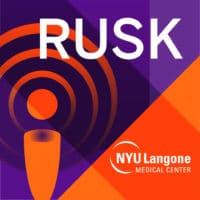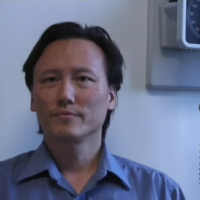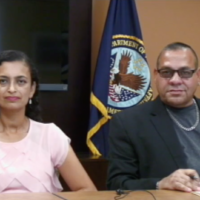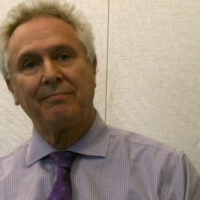Archive
Diagnostics
Learn about diagnostic evaluations of concussions and other brain injuries.
Discussion with Dr. Ernie Bryant
Dr. Ernie Bryant is a neuropsychologist with decades of experience treating people with brain injuries of all severities, including concussion. What is a neuropsychological evaluation? Dr. Bryant presents a case of a worker whose neuropsychological examination was complex as is often the case with brain injuries, especially concussions.
Cognitive Deficits In Veterans After Brain Injury
Cognitive deficits experienced by military personnel and others can be successfully treated with cognitive therapies.
The Emotional Consequences of Brain Injuries in Military Personnel
Military servicemen and servicewomen need early neurologic and psychiatric evaluations and comprehensive treatment after a traumatic brain injury.
Dr. Elizabeth Sandel: Former AAPM&R Executive Discusses Critical Elements of the Field
In part one, Dr. Sandel talks about physical medicine and rehabilitation and it’s broad scope. In part two, she discusses her mission to educate the public about brain injuries, including concussion. In part three, she discusses what happens to the brain with concussions and repeated concussions. She ends with a case of a patient with a complex diagnosis after a traumatic event that required the diagnosis in order for the best treatment approaches.
Modeling Brain Injury Care in the VA System
Dr. Anthony Chen is a neurologist specializing in the evaluation and treatment of veterans with traumatic brain injuries. Dr. Chen discusses the treatment of cognitive disorders that occur after these injuries, and the common co-occurrence of post-traumatic stress disorder and other mental health conditions in people with a history of…
Causes of Brain Injury in Military and Veterans
Interview with physiatrist Dr. Hetal Lakhani and 38-year Army veteran, Richard Reyes, who sustained three brain injuries during his military career.
Military Blast Injuries Can Injure More than the Brain
Military blast injuries can impact the brain, the lungs, the heart, and other organs in the body. Early diagnosis is very important.
Comprehensive Care of Concussions
Dr. Richard Delmonico, a neuropsychologist, outlines the approaches to triage and treatment in a concussion clinic in the Northern California Kaiser Permanente health system. He also discusses the uses of neuropsychological testing to help with diagnosis and management of people with concussions and other brain injuries.
Concussions in College Athletes
Dr. Melita Moore, a physiatrist, sports medicine doctor, and brain injury medicine physician reports about her experiences when she served as the physician for University of California Davis sports teams. She discusses collision sports such as football and soccer that have a high incidence of concussion, but also other sports…
Managing Concussion-Related Pain
Dr. Steven Moskowitz is a physiatrist specializing in pain management. He discusses the various painful conditions, including neck pain and headaches, that occur at high frequency after concussion and related trauma. He advocates for a biopsychosocial approach to the evaluation and treatment of these conditions.
The Post-Concussion Syndrome
Physiatrist Dr. Mel Glenn discusses the evaluation of the many symptoms that are part of a chronic condition called post-concussion syndrome or disorder that occurs in some patients after a concussion. He offers advice on the treatment of headaches, sleep disturbances, and other conditions.
Concussions in Young Children
Dr. Maya Evans is a pediatric physiatrist who treats children and adolescents with brain injuries, including concussions. She discusses the special needs of these populations for expert care and also advocates for prevention strategies.
Keep up to date
Get updates on the latest in concussion, brain health, and science-related tools from Dr. Elizabeth Sandel, M.D.
By clicking SIGN UP, you agree to receive emails from Dr. Sandel and agree to our terms of use and privacy policy.











